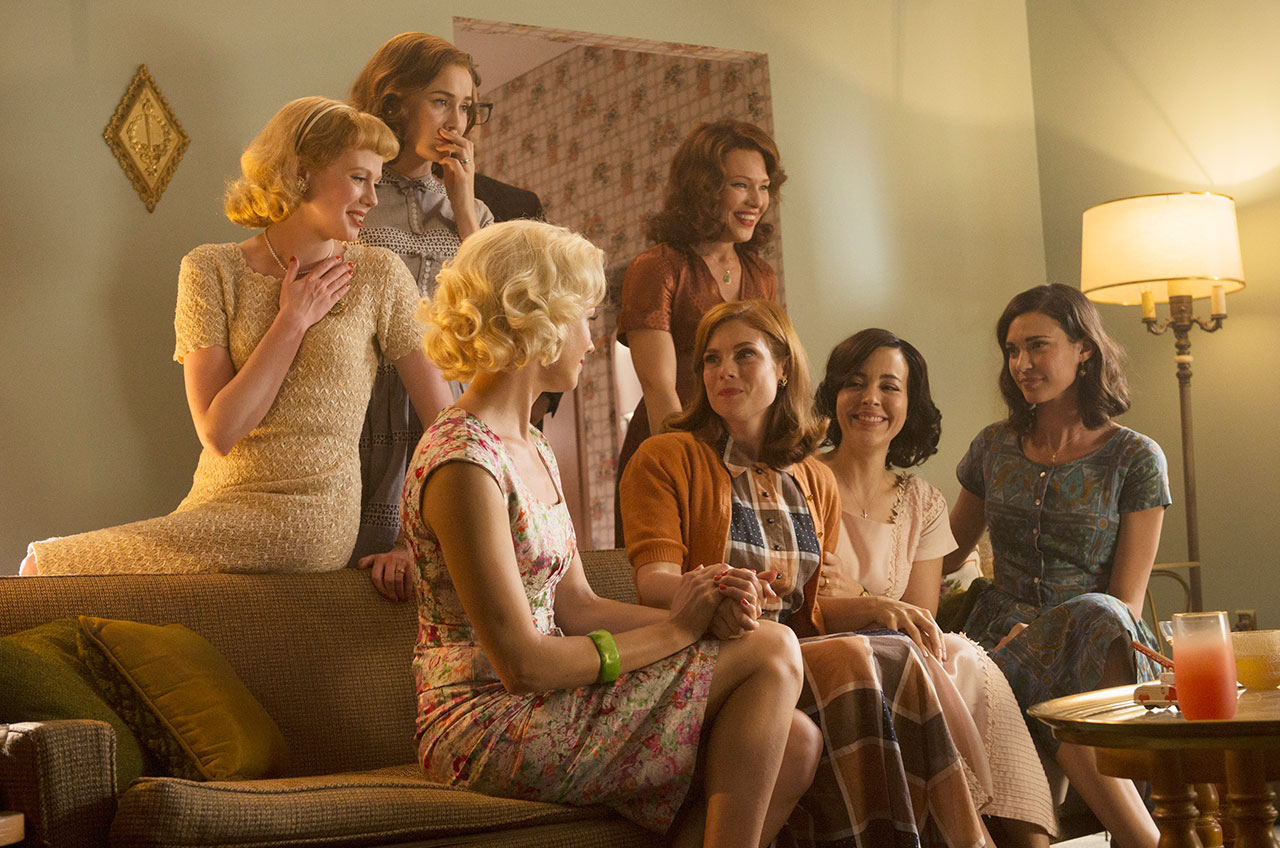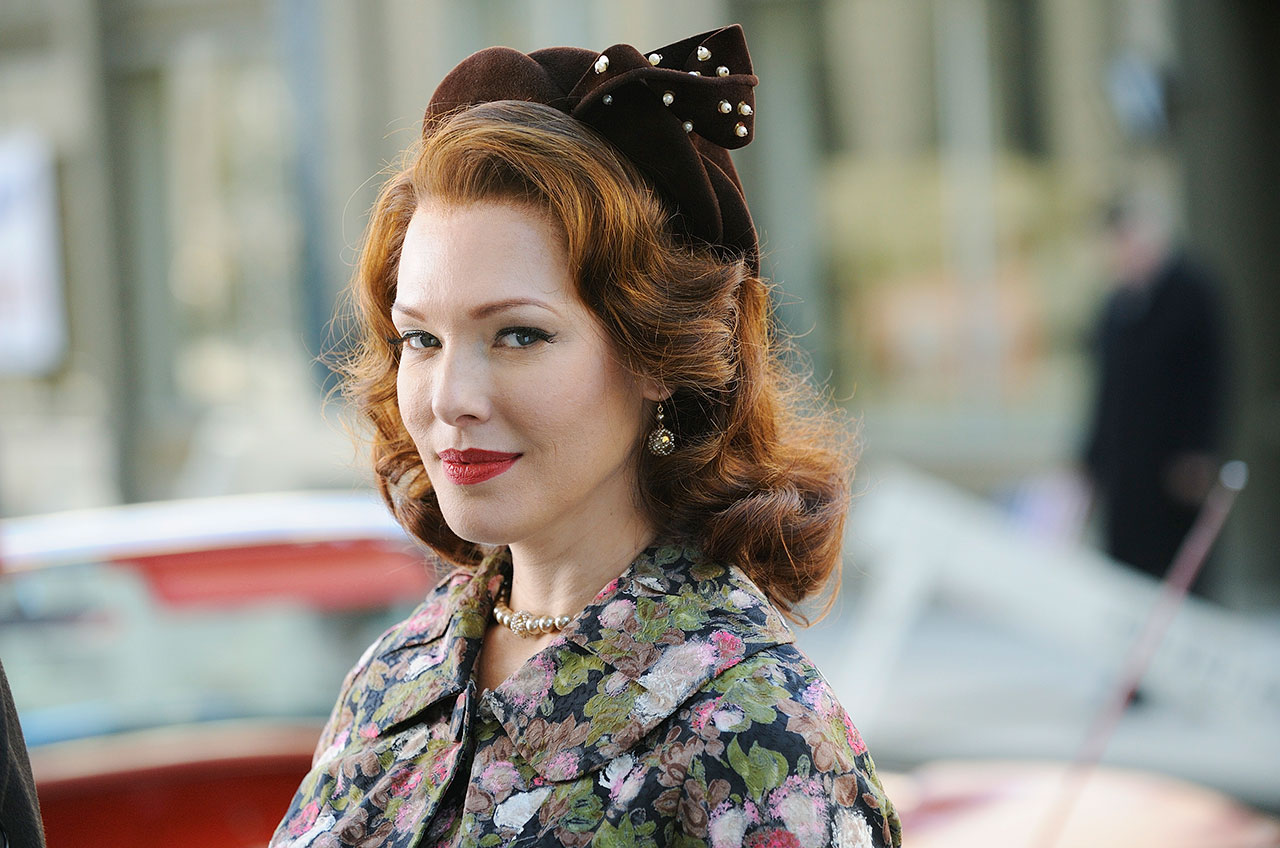'Astronaut Wives Club' Co-Star Talks Being Spaceman's Spouse on ABC Series

"The Astronaut Wives Club" blasts off Thursday night (June 18) on ABC, giving viewers a look at the other "right stuff" — the women behind America's first spacemen.
Based on author Lily Koppel's bestseller, the 10-episode docu-drama opens with NASA's Mercury 7 astronauts and, central to this series, their spouses, as they are thrust into the spotlight in the early 1960s.
The wives – as well as their high-flying husbands – landed on LIFE magazine's covers, which provides the initial plot point for "Astronaut Wives Club." But the accompanying articles only painted the "happy, proud and thrilled" view of the wives' story. The series (and Koppel's book before it) seeks to tell the more complete tale. [Book Excerpt: "The Astronaut Wives Club"]
At the center of the astronaut wives club, on screen and in real life, was "Mother" Marge Slayton, the wife of Mercury astronaut Donald "Deke" Slayton. On TV, the late Slayton is played by actress Erin Cummings, who is no stranger to period pieces, having previously appeared on ABC's "Pan Am" and AMC's "Mad Men," but took her first stab at the space program's history through this role.
Cummings spoke to collectSPACE.com about reconvening the astronaut wives club for the small screen.
collectSPACE (cS): How did you approach your portrayal of Marge Slayton, given you did not have access to her or Deke (Marge died in 1989; Deke in 1993)?
Erin Cummings (EC): "It's an interesting conundrum when you are playing a real person, in balance of doing research while at the same time creating a character as is the case with Marge Slayton. There is just so little information that is known about her, that it allowed for a certain amount of creative license.
Breaking space news, the latest updates on rocket launches, skywatching events and more!
And so in creating Marge, I really took the little information we had and created a character that I think would honor her and that if she was alive today she would enjoy herself being portrayed as.
cS: Did you have any resources from which to pull real-life details?
EC: Every once in awhile, we'd get little bits and pieces of information. For example, when [author] Lily Koppel came to the set, she told us these stories about what the others wives had said about Marge.
There was also the moment when the daughter of one of the astronauts from an Apollo mission came to visit the set and I just happened to sit down opposite her at lunch.
She shared that her mother always looked highly of Marge because she took over as head of the astronaut wives. Marge was really the one who helped acclimate all of the wives into this new role that they would be playing. She was instrumental for these women to making the transition from housewife to astronaut wife.
That conversation was very emotional for me, as it really hit me then — this is a real person and even though she is not alive to see the portrayal, it's the first time that I really understood the value of what we're doing in that a woman who has been erased from history books is finally being showcased to America. That made we very proud of what we are doing.
cS: So describe Marge Slayton, not necessarily the real-life woman, but "The Astronaut Wives Club" character you brought to life on screen.
EC: Of the seven wives, Marge is the one who carries the most secrets and baggage from her past. In the beginning of the season, we will see her struggle with that, and really struggle with her identity, her belief in herself, and that she deserves the platform that she and the other wives have now been given.
I think it is a common struggle when people feel they are a fish out of water and especially for Marge, the things from her past that really aren't due to her own fault, really come back and cause issues, not only for her, but also for her relationship with the other wives and her relationship with Deke.
Ultimately, she will come to terms with these things, and I think that's what enables her to become the leader she is for these women. But in the beginning, it was certainly a great challenge for her.
She can also be counted on for a sense of humor and a heavy dose of sarcasm. I consider her to be the comedic relief of the show. Even though the show itself is at many points quite light, Marge is always a good person to turn to when someone needs to lay on thick sarcasm and call out the obvious.
cS: Given that the series centers (at least at first) on the Mercury program, comparisons have, and continue to be made between it and the movie "The Right Stuff." Do you think that is reasonable?
EC: I think the correlation between "The Astronaut Wives Club" and "The Right Stuff" is appropriate, given that we're telling the opposite side of the coin.
While we see glimpses of the wives in "The Right Stuff," it really was about the incredibly heroic thing that these men were doing, and that story absolutely needs to be told. But to discount the other story, that what was happening on the home-front and unfolding before America's eyes in the magazines, that is also a story I think needs to be told.
I didn't have really have much of an opinion one way or the other about the Mercury missions before this, but what drew me to this story was when I read the script I saw the way these women were, not to repeat a phrase, but a fish out of water. I thought it was a story that so many people can relate to.
I love that the story goes into not only the competitive nature that these women had with one another over whose husbands were going on a specific mission, but also the fear, the trepidation, the excitement about being in front of the public eye, and then also the problems that can cause when you go through something like that in your life.
The show is a little bit lighter than I had initially imagined. I think in my head I go straight for the dark stuff, which I love, but I also understand that when you're telling a story appealing to a wide demographic that you want to try to make it as light and enjoyable for people while also mixing in those moments of anticipation.
cS: How does the lighter nature of the series play off what was the very real drama of the early space race?
EC: The recreation of the launches with the incorporation of actual footage, I think that is a powerful thing to show because it's not just like we're telling this fake story about things that did not happen. We are really recreating that intensity and excitement of something that had not been done before. [NASA's Seven Mercury Astronauts Unveiled (Video)]
So I am very excited about that, and I am also excited to have been able to learn more about the history of space exploration.
Visit collectSPACE.com on Thursday (June 18) for part two of the interview with Erin Cummings about how the cast of "The Astronaut Wives Club" came to imitate their real-life counterparts, on and off screen.
"The Astronaut Wives Club" premieres Thursday, June 18 at 8/7c on the ABC television network.
Click through to collectSPACE to watch the first 5 minutes of "Launch," the first episode of ABC's "The Astronaut Wives Club."
Follow collectSPACE.com on Facebook and on Twitter at @collectSPACE. Copyright 2015 collectSPACE.com. All rights reserved.

Robert Pearlman is a space historian, journalist and the founder and editor of collectSPACE.com, a daily news publication and community devoted to space history with a particular focus on how and where space exploration intersects with pop culture. Pearlman is also a contributing writer for Space.com and co-author of "Space Stations: The Art, Science, and Reality of Working in Space” published by Smithsonian Books in 2018.
In 2009, he was inducted into the U.S. Space Camp Hall of Fame in Huntsville, Alabama. In 2021, he was honored by the American Astronautical Society with the Ordway Award for Sustained Excellence in Spaceflight History. In 2023, the National Space Club Florida Committee recognized Pearlman with the Kolcum News and Communications Award for excellence in telling the space story along the Space Coast and throughout the world.


